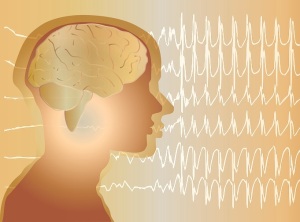by
Lisa Chamoff, Contributing Reporter | January 27, 2017
A committee has issued a guideline for the use of functional MR (fMRI) to help predict the impact of epilepsy surgery on language and memory functions in the brain, determining that fMRI can be used in place of a more invasive procedure for some patients.
The guideline, published earlier this month in an online issue of
Neurology, the medical journal of the American Academy of Neurology, noted that fMRI is an option for showing where language is lateralized in the brain of patients with medial temporal lobe epilepsy, temporal epilepsy in general or extratemporal epilepsy.
Patients with epilepsy may undergo surgery when medication does not control their seizures, and procedures to determine where language and memory are lateralized in the brain can help prevent damage to those functions during surgery.



Ad Statistics
Times Displayed: 174784
Times Visited: 3187 For those who need to move fast and expand clinical capabilities -- and would love new equipment -- the uCT 550 Advance offers a new fully configured 80-slice CT in up to 2 weeks with routine maintenance and parts and Software Upgrades for Life™ included.
The most common test, at least in the U.S., is the intracarotid amobarbital procedure (IAP), also known as the Wada test, in which one side of the patient’s brain is put to sleep by injecting a medication into the carotid artery. Risks include stroke and carotid artery damage. fMRI, which is less invasive and less expensive than the Wada test, maps the functions in the brain by looking for areas with increased neural activity, associated with increased blood flow to the brain.
“We are always trying to find something better than the Wada test,” lead author Dr. Jerzy Szaflarski, a neurology professor at the University of Alabama at Birmingham and fellow of the American Academy of Neurology, told HCB News.
In the U.S., the Wada test is still considered the standard, with 90 percent of patients undergoing it, Szaflarski said. By contrast, 10 to 20 percent of patients get the Wada test in Europe.
Szaflarski said the difference is likely because most U.S. doctors have been trained in the Wada test.
“Certainly there is a gradual decrease in the Wada test in the U.S. as well as [the fact that] we get more confident,” Szaflarski said. “The way I see guidelines [are as] a compilation of available knowledge, and some guidelines on how to proceed further.”
To determine the guideline, an 11-member committee reviewed studies dating back to 1991, fully reviewing 172 articles and ultimately choosing 37 studies to inform its decision.
The panel determined that there was not enough evidence to recommend fMRI for people with temporal neocortical epilepsy or temporal tumors. There was also less clear evidence for the ability of fMRI to predict outcomes for language and memory functions in a patient after surgery.
“Strength is better for verbal memory outcome than for nonverbal memory outcome,” Szaflarski said.
Patient samples in the studies the panel reviewed were small, with 20 to 40 subjects, which puts a limit on the guidelines, but Szaflarski said that a larger, 100-patient study, with results coming later this year, may help.
“We are now getting to the point where we have more data than we had four or five years ago,” Szaflarski said. “I expect we will be updating guidelines three or four years down the road.”

